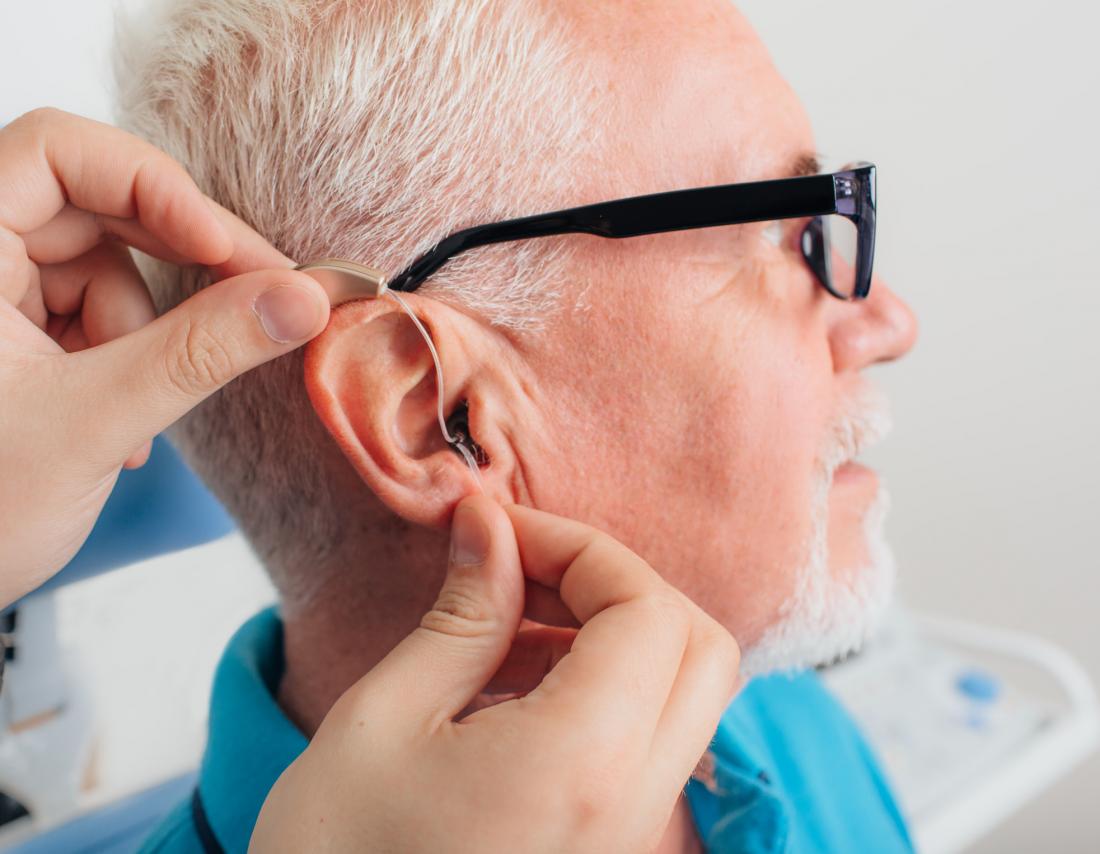Hearing aids lower the chance of dementia, depression, and falling

A new study finds that hearing devices benefit older adults in multiple ways, from physical safety to brain health.
Almost 1 in 4 people in the United States aged 65–74 have disabling hearing loss. In people over 75, the figure is 1 in 2.
Nonetheless, many people who would benefit from wearing a hearing aid do not wear them.
Experts have linked hearing loss to an increased likelihood of dementia, depression and anxiety, walking problems, and falling.
Now, a study in the Journal of American Geriatrics Society finds that using a hearing device makes these problems significantly less likely to occur.
Study lead Elham Mahmoudi, Ph.D., from the University of Michigan, explains:
"We already know that people with hearing loss have more adverse health events and more co-existing conditions, but this study allows us to see the effects of an intervention and look for associations between hearing aids and health outcomes."
She continues, "Though hearing aids can't be said to prevent these conditions, a delay in the onset of dementia, depression and anxiety, and the risk of serious falls could be significant both for the patient and for the costs to the Medicare system."
Looking into the data
The study, carried out at the University of Michigan Institute for Healthcare Policy and Innovation, looked at data from nearly 115,000 individuals who were over 66 years old and had hearing loss.
All the participants also had insurance through a Medicare Health Maintenance Organization (HMO).
The researchers chose Medicare HMOs because, unlike standard Medicare, they often cover hearing aid costs for members who have received a diagnosis with hearing loss from an audiologist.
The scientists tracked the participants' health from 1 year before their diagnosis to 3 years afterward. This allowed researchers to pinpoint any new diagnoses of dementia, depression, anxiety, or fall injuries.
The researchers noted significant differences between the outcomes of those with hearing loss who did wear a hearing aid compared with those who did not.
Previous research has looked into the links between hearing loss and dementia and mental health conditions. Some experts believe that social isolation, which sometimes comes with hearing loss, might result in less stimulation for the brain and, ultimately, cognitive decline.
Others have suggested that the deterioration of nerve impulses in the ear may be an indicator of a wider neural degeneration already underway.
